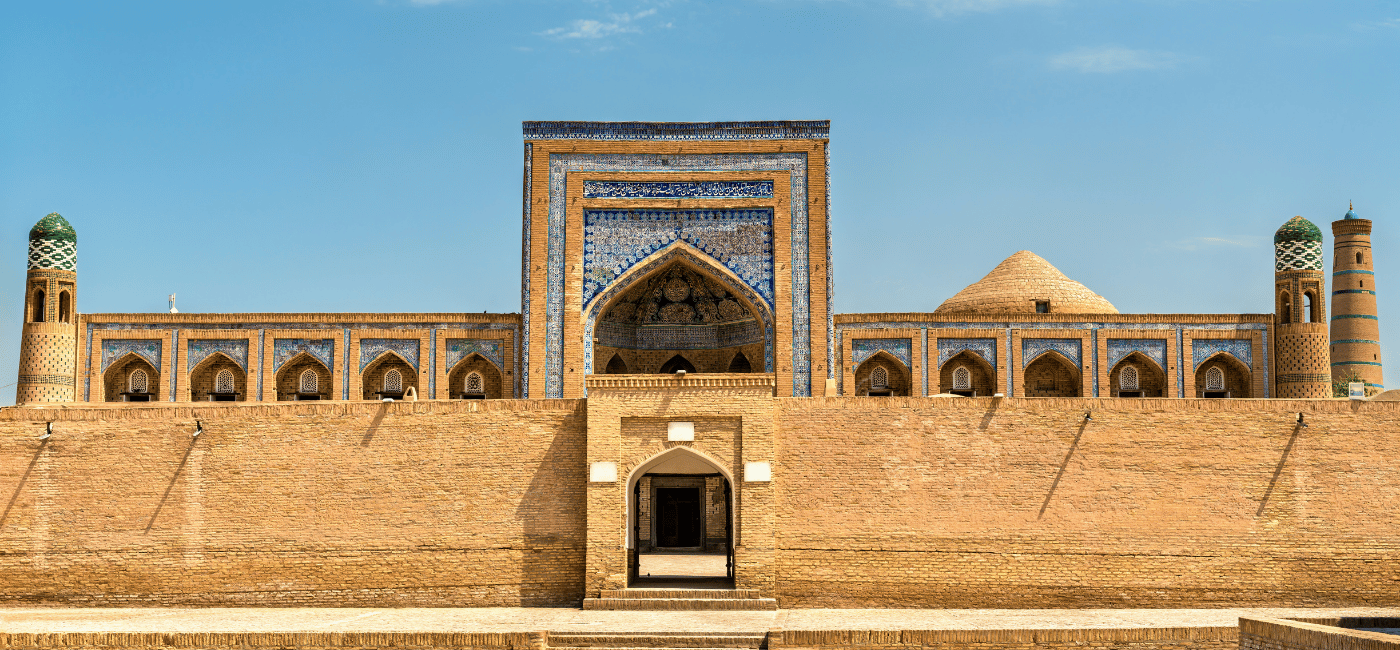Allakuli Khan Madrasah in Khiva

Allakuli Khan Madrasah
The Allakuli Khan Madrasah, constructed between 1834 and 1835, stands as a significant architectural and educational landmark in Khiva, Uzbekistan. Commissioned by Allakuli Khan, a prominent ruler of the Khiva Khanate, this madrasah exemplifies the city's rich cultural and scholarly heritage.
Location and Historical Context
Strategically situated within Itchan Kala, Khiva's historic inner city, the madrasah lies between the eastern gate (Palvan-Darvaza) and the covered bazaar (Tim Allakuli Khan). This placement underscores its integral role in the urban fabric of Khiva during the 19th century.
Architectural Features
The Allakuli Khan Madrasah is notable for its:
- Rectangular Layout: Encompassing dimensions of 62.45 by 47.0 meters, the structure includes a central courtyard measuring 34.6 by 29.4 meters, surrounded by student cells and educational spaces.
- Ninety-Nine Cells (Hujras): Designed to accommodate students and teachers, each cell is equipped with a door and window, emphasizing functionality and simplicity.
- Mosques and Lecture Halls: The complex houses both winter and summer mosques, as well as a lecture hall, facilitating year-round educational activities.
- Decorative Elements: The façade is adorned with Khorezmian-style majolica tiles in shades of blue, white, and black. Intricate patterns embellish the portal, double arcade of columns, and tympanums, showcasing the artistic craftsmanship of the era.
Educational and Cultural Significance
Historically, the madrasah functioned as a premier center for Islamic learning, attracting students from diverse backgrounds, including Kazakh and Turkmen communities. Allakuli Khan endowed the institution with a library, providing essential literature and resources to scholars. To support the madrasah's operations, he allocated revenues from nearby commercial establishments, such as the Tim (covered bazaar) and caravanserai, as waqf (endowment) property.
Current Status
Today, the Allakuli Khan Madrasah stands as a testament to Khiva's architectural grandeur and educational legacy. While it no longer functions as a religious school, the building has been repurposed to house a handicraft center, allowing visitors to appreciate traditional Uzbek crafts within a historical setting.
As part of the Itchan Kala UNESCO World Heritage Site, the Allakuli Khan Madrasah continues to captivate visitors with its architectural beauty and historical significance, offering a glimpse into the rich cultural tapestry of Khiva.
List of Top Sights to See in Khiva

